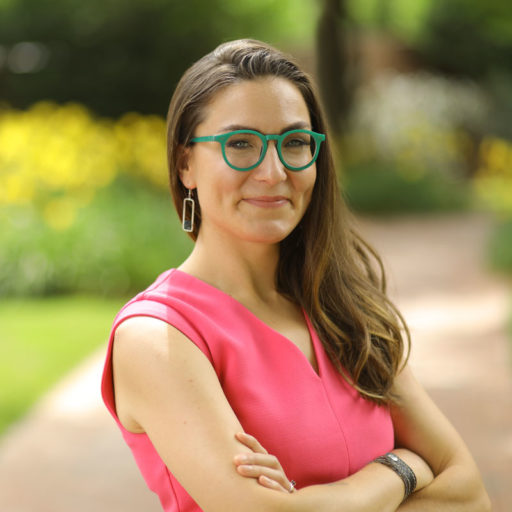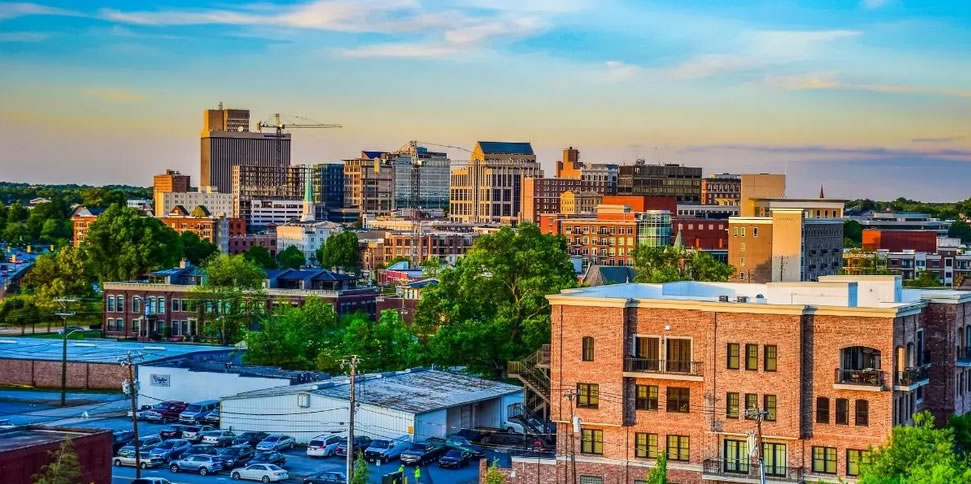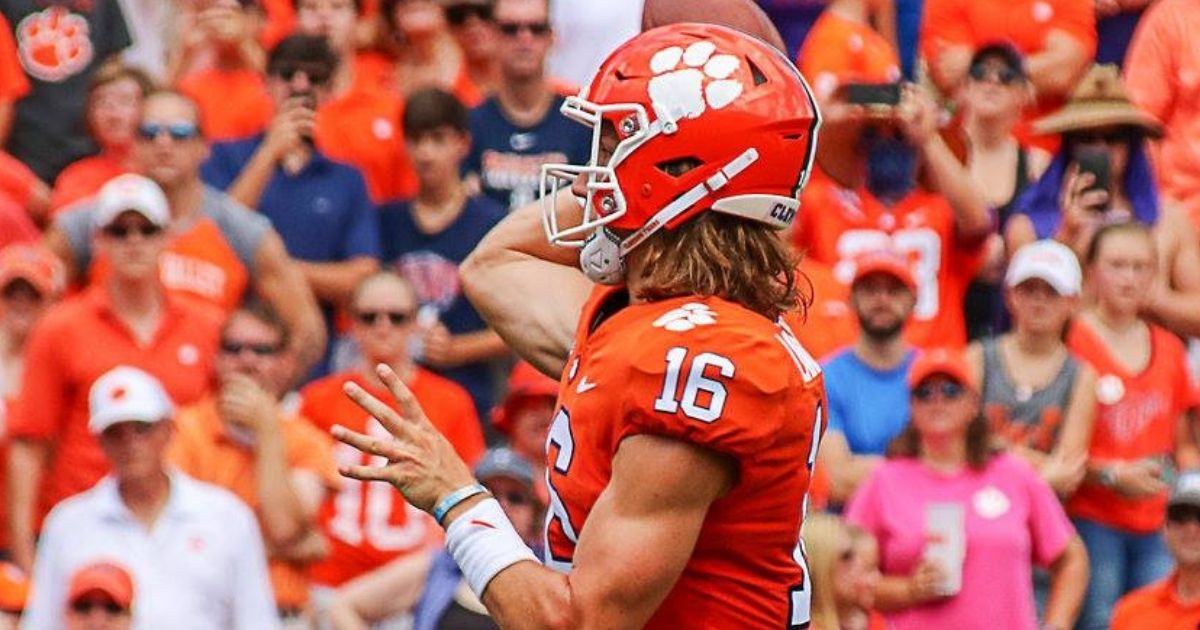Reagan Brittain and Brittany Arsiniega
Politics and International Affairs major Reagan Brittain and Furman professor Brittany Arsiniega Look at the 2020 Election
Voting is one of the few ways that ordinary Americans, like most of you reading this article, get to participate in and influence our democracy. Most of us will never run for public office. Most of us don’t have the financial resources required to lobby politicians. But voting is free. Casting a vote is a means by which we can express our discontent with current political leaders and policies, or demonstrate hope for future ones.
We are a Politics and International Affairs major (Reagan) and professor (Brittany) at Furman University. In this article, we hope to share some basics about voting – what purpose it serves, who does it, and what voter turnout between different age groups looks like.
At their core, governments exist to provide public goods. Public goods can be tangible things like schools and roads or intangible things like healthcare and social security. As you’ve undoubtedly noticed, there is no consensus among Americans regarding how these public goods ought to be prioritized, and to whom they should be provided. Which goods should be provided first, given limited budgets? Which not at all? Who gets to reap the benefits of the good things our government provides?
Ideally, legislatures and executives who owe their positions to voters take cues from their constituents regarding these priorities, and make public policy decisions accordingly If you are not satisfied with the government’s priorities, you have to vote in order to change this. If you are satisfied, you have to vote to keep it that way.
What motivates the voting public
While it might be surprising, young people (18-29 year olds) are often concerned with many of the same issues as older Americans when it comes to elections. There are, however, voting issues that are of particular concern to young people. The three issues that hold the highest priority for the youngest voters (ages 18-21) are the environment, racism, and affordable healthcare, according to Tufts University’s Center for Information and Research on Civic Learning & Engagement (CIRCLE). Among voters who are slightly older, Millenials of color are most likely to care about racism, immigration, and income inequality, whereas white Millennials are most concerned about the topics of immigration, Roe v. Wade, and taxes.
While we might expect student loans and education policy to be high in the priorities of younger voters, few reported these as the most weighty matters when they’re considering for whom to vote — despite the fact that the average student loan debt for 2019 college grads was $29,900; Americans as a whole owe over $1.64 trillion in student loan debt.
As far as general leanings go, CIRCLE reports that young people tend to be more liberal than older generations in this year’s election cycle. This information is not surprising: Pew Research reports that younger generations historically are more liberal than their older counterparts. Above all, the youngest voters care about a candidate who is perceived as trustworthy and is relatable.
Turnout for Younger Voters Remains Low
Despite the fact that young voters will have to live with the repercussions of current public policy decisions the longest, young people consistently have the lowest voter turnout rates of any age category. According to census data, barely 30% of Americans between the ages of 18 and 24 voted in the 2018 elections. Those aged 25 to 44 had a higher turnout, but still only 40%.
Voting rates always see a bump in presidential election years. In 2016, 39% of young Americans (ages 18-24) voted, but less than 16% voted in midterm elections in 2014. This reflects a long-standing trend in American politics in which voter turnout in “off years” (midterm elections) is roughly half the turnout in “on years” (presidential elections).
Unfortunately, even during presidential election years, many eligible voters choose not to cast a vote: even older Americans often skip the opportunity to weigh in: a mere 49% of voters ages 25-44 participated in the 2016 presidential election. The oldest Americans (ages 65 and older) are the most likely to vote. But still, overall, roughly four out of every ten eligible voters chose not to cast a ballot in 2016. There are many reasons for non-voting: financial barriers keep some from acquiring the necessary identification cards required to register; some lack access to transportation or time off work. NPR reports that some non-voters “are apathetic or too busy. Others don’t like their choices, they don’t think their vote matters, they think the system is corrupt, or they don’t think they know enough to vote.” Whatever the reason, those who don’t vote must still live with the public policy decisions made by candidates elected by those who do.

Greenville County Polling Location Directory: Where to Vote
Turnout for 2020 election may be high
In large part due to the divisiveness of the Trump presidency, the 2018 midterm elections saw unusually high turnout rates for a non-presidential election year. 2018 saw only about 25% fewer young voters than did 2016.
If this pattern holds true, we might hope to see far greater numbers of voter turnout in 2020 than we’ve seen in the past. That said, youth registration for the 2020 election has far exceeded the 2016 election, according to Circle.
There is a range of political participation in South Carolina universities. Clemson recorded a 2018 voting rate of an even 41%, beating the 39.1% average for colleges nationally. USC clocked in at 34.7%, the Citadel at 32.3%, and Winthrop University at 40.1%. All of the above universities saw an increase in voter turnout from previous years, and graduate students were more active voters in 2018 than undergraduates in every school except Clemson. Greenville’s own Furman University was ranked the second most politically active student body by The Princeton Review (according to students’ own reports of political awareness), yet less than a quarter of Furman students voted in the 2018 midterms.
As a student and professor of American politics, we perhaps spend a disproportionate amount of time thinking about the importance of voting. But we urge all of you — especially those who have not yet decided for whom to vote in this upcoming election — to pay careful attention to the ways in which the candidates are promising to shift our country’s priorities in the provision of public goods. Which vision of America, and which organization of priorities, will maximize welfare for the most of us? After all, that is what government is really about.
About the Authors

Brittany Arsiniega, JD, PhD (she / her)
Assistant Professor, Politics and International Affairs, Furman University
Brittany Arsiniega is an Assistant Professor of Politics and International Affairs at Furman University. She is interested in law and society, especially the study of policing and immigration. Brittany attended the University of Colorado, Boulder where she graduated with distinction, received the Chancellor’s Award for earning a 4.0 GPA, and was first in her class for both International Affairs and Spanish for the Business Professions majors. After working in North and South America for three years, she attended the University of California, Berkeley for a dual JD/PhD program in Jurisprudence and Social Policy. Brittany graduated from law school as a member of the Order of the Coif and is admitted to practice law in California and South Carolina. Along with Professor Teresa Cosby, Brittany supervises student interns in The Justicia Project, a legal clinical program providing legal assistance clients on a variety of social justice-related issues. When she’s not working at Furman, Brittany practices law with Wyche, P.A. and volunteers as a member of Hispanic Alliance’s legal team. She enjoys mentoring students who are interested in law or graduate school.
EDUCATION
- B.A., University of Colorado, Boulder (with distinction)
- J.D., University of California, Berkeley (Order of the Coif)
- Ph.D., University of California, Berkeley
Reagan Brittain
Politics and International Affairs major at Furman University
Reagan is a Colorado native who began her academic career in New York City at The King’s College before transferring to Furman University in Greenville to finish undergrad where she is studying Politics and Economics. She is passionate about international relations and the future of the United States. She also loves a good cold brew coffee and hammocking outside in the beautiful South Carolina weather.











